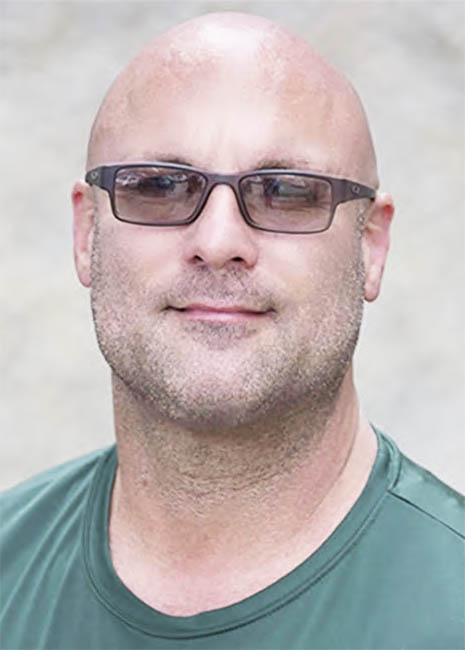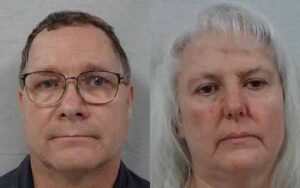
FORT WORTH, Texas (BP) — Imagine a person was just released from prison and wanted to get his life on the right track, and he knew going to church needed to be part of that plan. But because of his criminal record, he was required to stay away from churches.
Such a person in Fort Worth, Texas, is able to find help and hope through Freedom Church, a ministry of First Baptist Church in nearby Colleyville. Freedom Church reaches men and women re-entering society from prison by offering weekly worship services, small groups and life skills classes.
“Since these individuals for whatever reason — their paperwork, a stigma they may carry with them — don’t feel comfortable walking into a church or maybe they’re not thinking about church, I thought, ‘Hey, let’s bring church to them,'” said John Earle, Freedom Church’s campus pastor.
“When we reach ‘the least of these,’ it’s individuals who maybe committed murder, hardened criminals who have done their time and now they’re trying to get back into society,” Earle told the Sothern Baptist TEXAN.
The ministry began a couple of years ago when First Baptist Colleyville deployed small group leaders to offer Bible studies in parolee housing complexes in Fort Worth, about half an hour from the church. They’d meet in laundry rooms or wherever they could find space.
About a year ago, Earle said, Freedom Church emerged, with Wednesday night worship services in a rented room at the Resource Center of Tarrant County. After eight years on staff as a youth pastor, Earle transitioned last fall to his new position leading the ministry.
Earle, who was an offensive tackle for five seasons in the NFL before entering ministry, soon realized the church volunteers weren’t able to maximize their efforts while meeting in the resource room. For one, parolees had to fill out extensive paperwork just to get permission to attend the services.
“They had stipulations within their parole if they were allowed to leave the campus,” he said. “I saw that sometimes they came and sometimes they didn’t. Sometimes it might be in their paperwork that if they worked in the daytime they can’t leave their campus at night.”
So starting in January, the worship services moved to the housing units where the parolees stay as they transition back into society. “It gives us a lot more people to reach with the Gospel,” Earle said.
“We know that we’re never going to be autonomous because of the turnover,” he said. “We have these parolees anywhere from three to five months. They go into these housing units and then they leave and go back into society. Our impact has to be fast and furious.”
When a parolee is allowed to leave prison, Earle said, “immediately they want a job. They need clothes. They need a place to stay. They need food. Those are all big-time urgencies on their hearts.
“But as I roll with them, I let them know that unless they have a heart transplant they’re going to be the same old, same old, and that urgency is going to cause them to make bad choices and get back in prison again.
“We see people getting saved daily. This past Sunday at a small group we had eight people get saved,” Earle said. “We’re going to get them baptized and walking with God.
“I’ve heard stories of people getting attached to Freedom Church and six months later when they’re out and not living in the housing unit anymore, they still come to the services. They’ve told our volunteers that Freedom has had the biggest impact on their life.” They talk about their transformation, Earle said, and how they have better lives now that they walk with Christ.
God repeatedly offers forgiveness when true repentance is present, he said.
“When these people are turning their backs on their sinful ways, who are we not to offer an opportunity to do life with them and help them get back on their feet and help them understand that they can be a returning citizen in society?”
It’s normal for people to feel uneasy when someone with a criminal record crosses their path, Earle said, especially if the person is a sex offender. “People want to forgive them from afar, but that’s not true forgiveness. True forgiveness is offering to do life with somebody.”
Earle was born and raised in Keyport, N.J., and went to college in Illinois before being drafted into the NFL. After playing pro football, he joined Sports World Ministries and traveled the country sharing his testimony in public schools for 12 years.
Part of that testimony is that football had been everything to him, and then he saw it slipping away; within a 14-month span he broke his right foot twice and his left foot twice. He thought of suicide, and he called his dad, who told him Jesus loved him and would never leave him. That night in 1991 he surrendered his life to Christ.
Around 2008, after he had spoken in a Texas school, a pastor called him and asked him to consider being a youth pastor in Gainesville, Texas. “I lived in Illinois. I was from New Jersey. I had no thoughts about going to Gainesville, Texas, but I went down there and became a youth pastor and enjoyed every minute of it,” Earle said.
After three years there, he went to First Baptist Colleyville. What led him into prison ministry there, he said, is that Guy Earle, his identical twin brother who also played in the NFL, is executive pastor of GracePointe Church in Denton, and the two brothers founded Think Twice Ministries.
“We do prison ministry,” John Earle said. “We probably do about 100 speaking events in prisons a year, and we see thousands of salvations. … We’ve been doing that for like the last 10 years. That’s where the love for prison ministry has come from.”
To give a prisoner the opportunity to rehabilitate himself with Christ starts with hearing the Word of God and includes a small group setting where he can receive individual attention, Earle said. “We can offer anger management classes and other things.”
But prison ministry can go beyond showing up, preaching and leaving, he said.
“The parolee ministry is a little different because you’re doing life with them, you’re offering yourself, walking side by side with them as they are learning how to figure out life again,” Earle said. “I guarantee every city has parolee houses. I would encourage your church to find the parolee houses that are in their area and start impacting them.”














